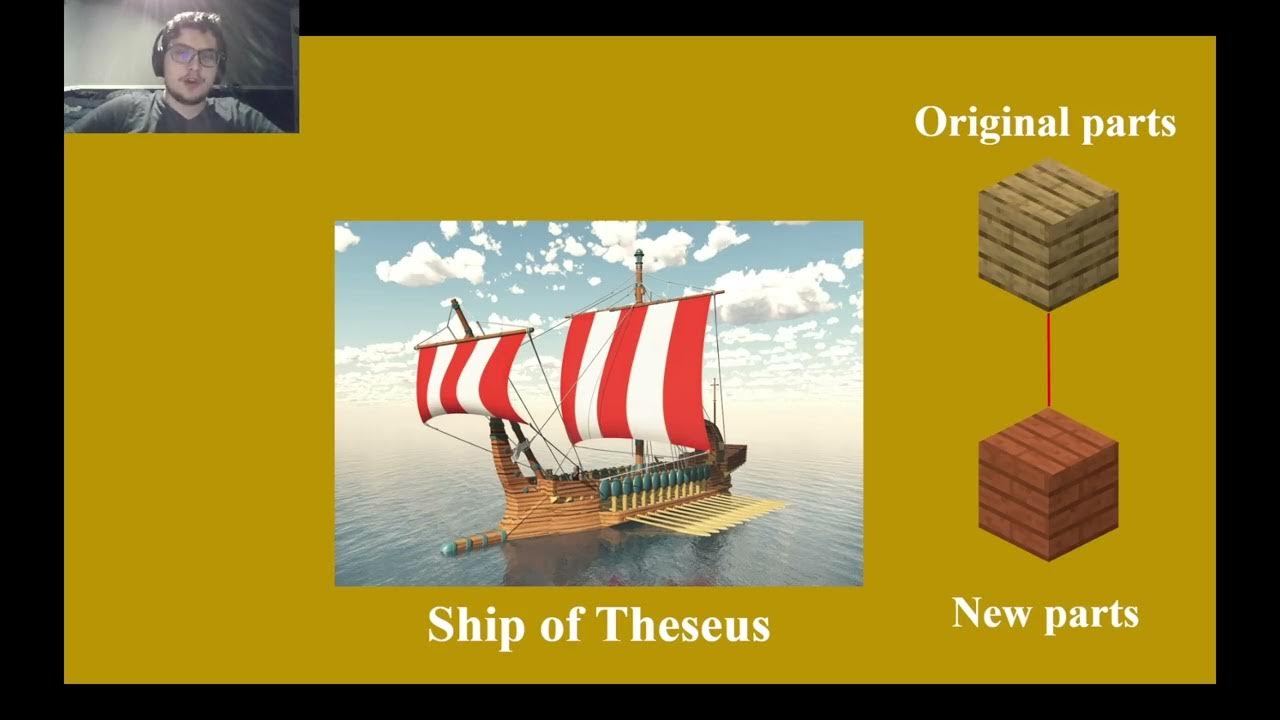You Don’t Actually Know What Your Future Self Wants | Shankar Vedantam | TED
Summary
TLDRThe speaker recounts personal stories to illustrate how people change over time, challenging the 'illusion of continuity' where we assume future selves will be the same. He discusses the ethical dilemmas arising from this illusion, using the example of a couple's differing views on end-of-life care. The talk concludes with advice to stay curious, practice humility, and be brave to shape a better future self.
Takeaways
- 😀 The speaker's childhood love for soccer contrasted with his later shift to American football illustrates how our interests can change dramatically over time.
- 🎓 At 22, the speaker was an electronics engineer with no idea he would become a journalist and podcast host in the US, highlighting the unpredictability of our future selves.
- 🌐 The COVID-19 pandemic has accelerated changes in people, affecting their outlooks and perspectives, showing how quickly circumstances can alter who we are.
- 🔄 The 'illusion of continuity' is the idea that we expect our future selves to be the same as our current selves, despite recognizing changes in our past.
- 👵 The story of John and Stephanie Rinka reveals how our health conditions and circumstances can lead us to make decisions contrary to what we previously believed.
- 🚢 The 'ship of Theseus' thought experiment is used to explore the concept of personal identity and change, questioning if we remain the same person over time.
- 🧠 Our psychological identity is not static; it evolves as we gain new experiences and perspectives, challenging the idea of a consistent self.
- 🗣️ When making promises or laws, we should consider that our future selves might have different views and needs, urging a more flexible approach to commitments.
- 🌟 The speaker advises staying curious, practicing humility, and being brave to shape a future self that we will appreciate, providing actionable steps for personal growth.
- 👥 These principles are not just for individuals but also apply to organizations and societies, emphasizing the need for adaptability and evolution in all aspects of life.
Q & A
What happened to the speaker when he was 12 years old?
-The speaker fractured his foot while playing soccer but chose not to tell his parents because he didn't want to miss seeing a soccer movie the next day.
Why did the speaker limp while walking to the movie theater with his dad?
-He limped because of the fractured foot he sustained from playing soccer, but he lied to his dad, saying he had something in his shoe.
How did the speaker's interest in soccer change over time?
-Four decades later, the speaker no longer considers himself a soccer fan and has shifted his sports interest to another kind of football.
What was the speaker's profession when he was 22 years old?
-The speaker was a freshly minted electronics engineer in southern India.
What is the name of the podcast the speaker hosts?
-The speaker hosts a podcast called 'Hidden Brain'.
What paradox does the speaker mention regarding how we perceive our personal changes over time?
-The paradox is that while we can see significant changes in ourselves when looking back, we tend to imagine that we will remain the same in the future.
What is the term the speaker uses to describe the belief that our future selves will be the same as our current selves?
-The speaker calls this belief the 'illusion of continuity'.
What is the story of John and Stephanie Rinka related to the speaker's main point?
-The story illustrates the illusion of continuity by showing how Stephanie's wishes about her end-of-life care changed when she actually faced a terminal illness.
What disease did Stephanie Rinka develop in her late fifties?
-Stephanie Rinka was diagnosed with ALS, also known as Lou Gehrig's disease.
How does the speaker suggest we should approach making decisions for our future selves?
-The speaker advises to stay curious, practice humility, and be brave, recognizing that our future selves may have different perspectives and capabilities.
What is the 'ship of Theseus' thought experiment mentioned by the speaker?
-The 'ship of Theseus' is a philosophical thought experiment that questions identity and change over time, using the analogy of a ship where parts are gradually replaced.
Outlines

Esta sección está disponible solo para usuarios con suscripción. Por favor, mejora tu plan para acceder a esta parte.
Mejorar ahoraMindmap

Esta sección está disponible solo para usuarios con suscripción. Por favor, mejora tu plan para acceder a esta parte.
Mejorar ahoraKeywords

Esta sección está disponible solo para usuarios con suscripción. Por favor, mejora tu plan para acceder a esta parte.
Mejorar ahoraHighlights

Esta sección está disponible solo para usuarios con suscripción. Por favor, mejora tu plan para acceder a esta parte.
Mejorar ahoraTranscripts

Esta sección está disponible solo para usuarios con suscripción. Por favor, mejora tu plan para acceder a esta parte.
Mejorar ahora5.0 / 5 (0 votes)






